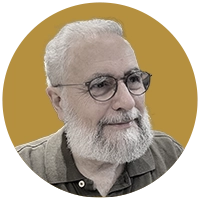France’s Political Calculus on Turkey, Israel
This article is from the archive of The New York Sun before the launch of its new website in 2022. The Sun has neither altered nor updated such articles but will seek to correct any errors, mis-categorizations or other problems introduced during transfer.

Nicolas Sarkozy, the former finance minister of France, and – since last November – the leader of UMP, the French conservative party, is distancing himself quietly but rather quickly from the conservative president, Jacques Chirac. One issue is Turkey. Mr. Chirac is extending qualified support to Turkey’s membership in the European Union. Mr. Sarkozy would rather keep that country out. Another issue is Israel. Mr. Chirac is known to be siding with the Arab camp and the Palestinian Arabs (he accorded state honors to Yasser Arafat after his demise in a French military hospital, on November 11). Mr. Sarkozy, however, is quite unabashedly pro-Israel. He even thinks the Jewish State would be a more suitable partner for the Europeans than Turkey and many other countries.
Clearly, Mr. Sarkozy is not fishing for the Jewish vote -which hardly exists in France anyway: The country’s constitutional provisions and the demographics are vastly different from America in this respect. Quite tellingly, he made some of his most clear-cut statements about Turkey and Israel, shortly before Christmas, at Le Cercle des Europeans, a political club created by another French former minister, Noelle Lenoir, and the very heart of the French and E.U. Establishment.
“The matter is not Turkey,” Mr. Sarkozy said. “It is Europe and its identity. The Turks are close to us. Still, they belong to another area, both in terms of geography and culture. If they join us, we will be at loss not to take in more partners with similar profiles, both on our eastern and southern borders. In the end of the day, the very concept of Europe as a community based on a common history and common values will be lost.”
The UMP leader stressed the fact that the capital city of Turkey is not Istanbul but Ankara, a city in Anatolia, i. e. in Asia. “Am I really going to tell my children that it is lying in Europe?” he wondered. Were Turkey a very minor country, this would certainly not matter much. “But it is already a huge country, and it is poised to grow,” he added. “Let’s assume they join Europe. On the basis of the current demographic data, they are 17% of us.
Quite big, don’t you think?”
Uluc Ozulker, the Turkish ambassador to France, was attending. He asked Mr. Sarkozy whether the matter was not Islam. “You must be aware,” Mr. Sarkozy replied, “that as the minister of the interior in this country, I helped the Muslim religion to be organized, that I support affirmative action for the underprivileged French Muslims, and that I support a revision of the 1905 law on the separation of church and state that would allow the democratic government of France to fund Muslim religious organizations. I repeat: What I am saying is not against Islam, it is about Europe.”
Mr. Sarkozy thinks an overextended Europe cannot function properly. Then, if the union really is to extend both eastwards and southwards, he would suggest turning to Israel, a country he just visited a few days earlier.
“Israel is the most likely candidate to the E.U. in this part of the world,” he said. “Most of the Israelis come from Europe or were raised according to European standards. They share our culture and our values. And they have built one of the most impressive economies in the world.” Regarding the peace process: “Only in Europe do people think there are problems about that on the Israeli side. Everybody I met there, and I met everybody, acknowledges the right of the Palestinians to their sovereign state.” The previous week, Mr. Sarkozy was the guest-star of Israel’s Fifth Strategic Conference in Herzliya.
There is a further dimension about Mr. Sarkozy’s statements. What makes the UMP chief politically successful, so far, is a talent for sticking to French public opinion as it really is, beyond cliches and pieties, and implementing the citizens’ real demands. This is how he became popular as minister of the interior (he made law and order a priority and meant it) and as finance minister (he cut some taxes and helped cutting some prices).This is how he stormed the UMP in a near plebiscite (he promised to rebuild it as a true conservative party rather than to keep it as Mr. Chirac’s electoral machine).
One may surmise that Mr. Sarkozy relies on the same talent when it comes to foreign affairs. In other words, that he double-checked how the French feel about Turkey and Israel before taking his present stand. Bad news for Turkey (but not much of a surprise as a recent poll showed that 62% of the French are against its membership in Europe). Good news, if only in the long run, for Israel.
Mr. Gurfinkiel is the editor of Valeurs Actuelles, a Paris-based journal.

